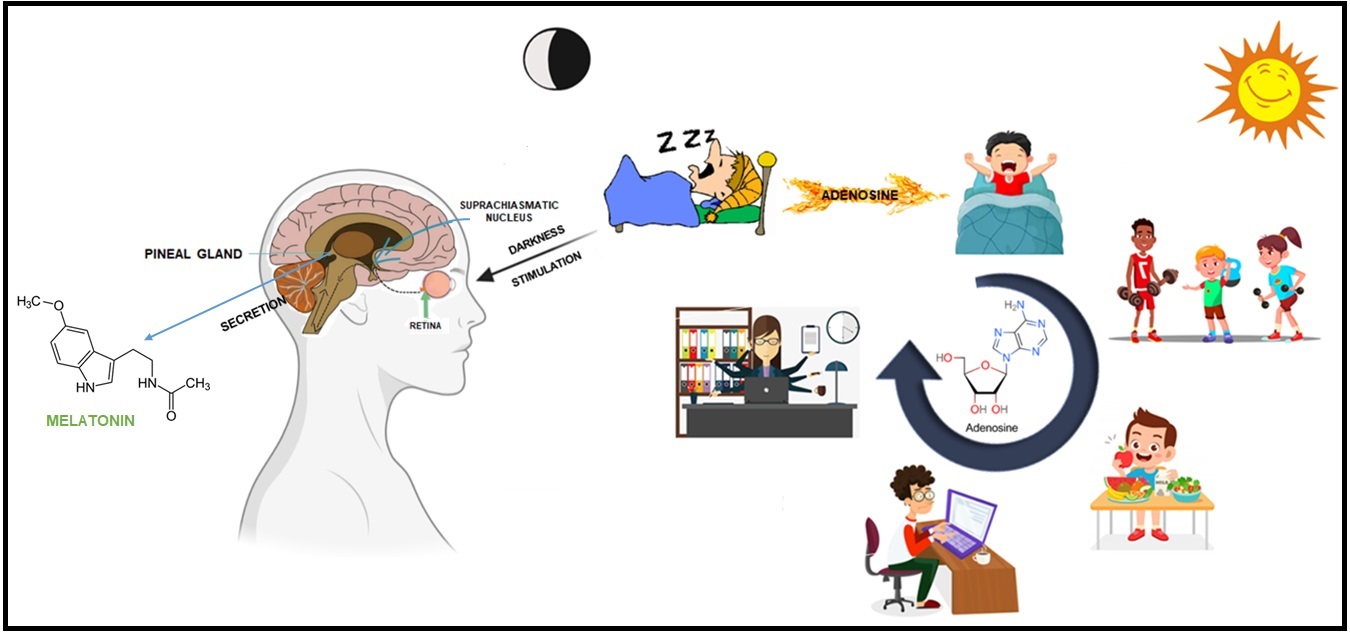Sleep is a necessary routine in our life, similar to food and water, to keep our body healthy, and recharging of our brains to keep and prepared for a fresh day. Enough sleep is essential to keep the brain active, which is critical in concentration, learning, and memory storage. Researchers revealed that sleep deprivation not only makes us cranky and irritable but also imparts health burdens like blood pressure, cardiovascular disease, depression, and obesity. Evidently, sleep follows circadian rhythms and homeostasis mechanisms. The controlled time of sleeping and waking up without an alarm is due to circadian rhythms followed by the synchronization of the body with the external factors such as light, temperature and many others, and even continue in the absence of these factors. Human body is reminded to sleep at a certain time by sleep-wake homeostasis. As the sleep deprivation period increases, which results in a longer and deeper sleep.
The pineal gland produces melatonin when the retina is not exposed to light. The darkness inhibits the signal transfer from the suprachiasmatic nucleus (an area of the brain), which in turn causes melatonin production by the pineal gland. The melatonin is derived from tryptophan through
Written by: Supriya Jain, DST-JRF, Yenepoya Research Centre, Yenepoya (Deemed to be University), Mangalore-575018, Karnataka, India.

Her profile: https://yenepoya.res.in/team/supriya-jain/#1561549713017-7925d3bc-4beb
Artwork: Supriya Jain
Edited by: Dr. Renjith Johnson and Saketh Kapoor


The way you conveyed from basic needs to molecular level was excellent. Thanks Supriya Jain
Good information Supriya.
Informative and helpful👍